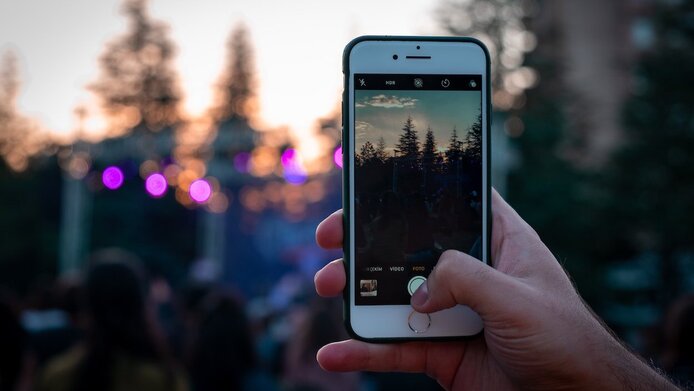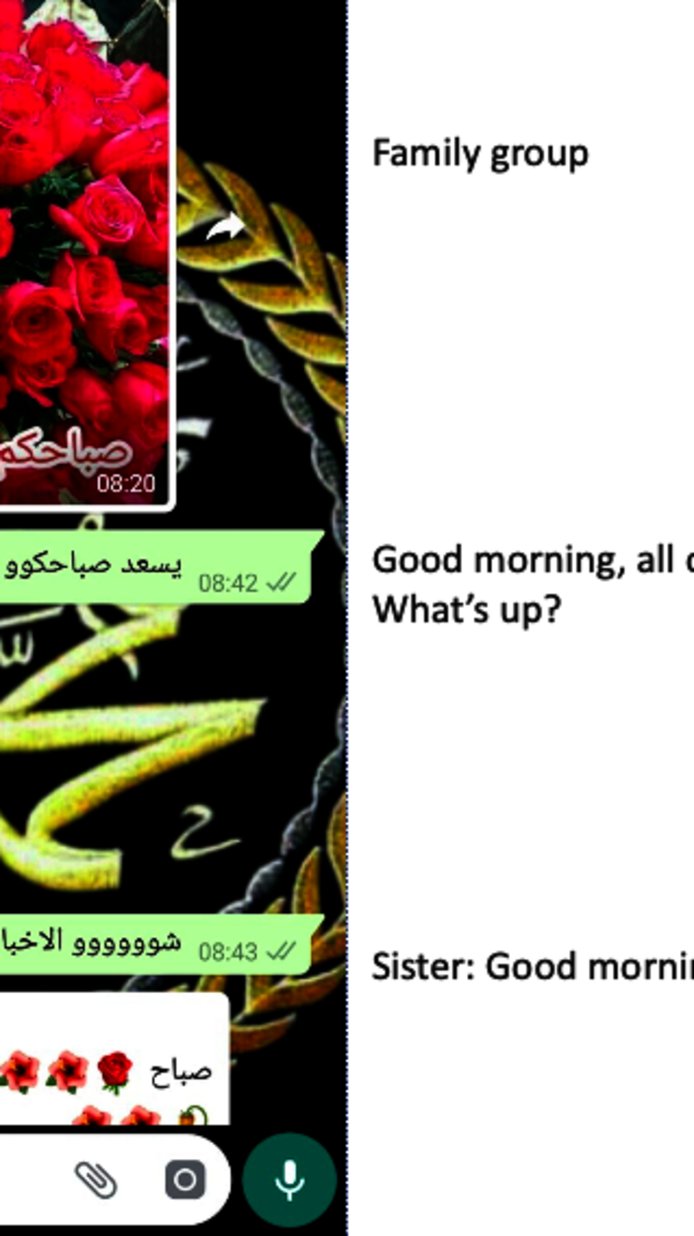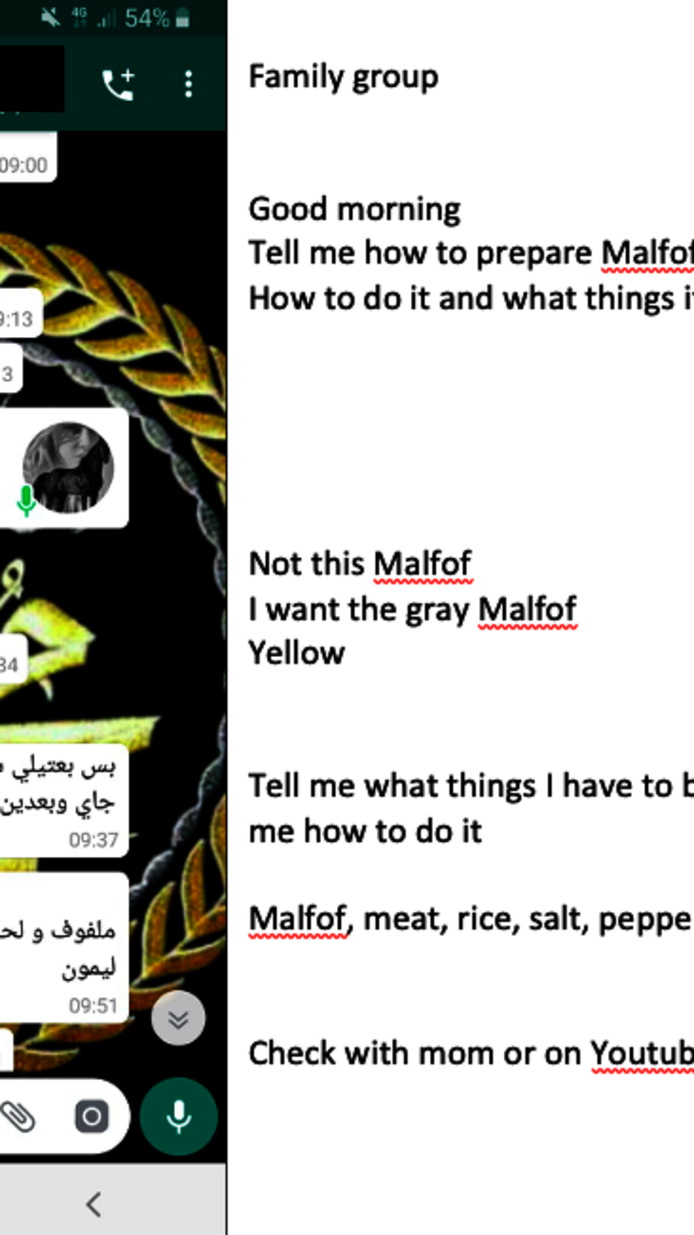Making analogue connections by digital media

Every morning in Vienna, 24-year-old Rasheed receives a WhatsApp message from his mother, who currently lives in Lebanon. Since he arrived in Austria in 2015 after fleeing from Syria, his mother has been choosing a picture with flowers, added a few words and sent it to Rasheed and to his siblings in their chat group. His brother lives in Dubai, the two sisters are at present in Turkey. One of them wants to get married soon, the other one had a baby three months ago. All four siblings respond, and this is how these five members of one family start their day. Even if the names and places in this example are made up, the scenario is real and typical of refugees in Austria. “Doing family” is the term experts use for this situation. Families are not only the result of biology and legal relations, but they must also be “made” by doing things together and engaging in caring relationships. That is especially true when the family members are unable to live in one place. In her project "REFUGEeICT – Multi-local Care and the Use of Information and Communication Technologies Among Refugees", Monika Palmberger, Elise Richter Fellow at the University of Vienna, addresses the question as to how new technological options can keep families together and what role they play in building and maintain relationships as well for orienting oneself in a new place.
From research subject to research partner
Forced migration and labour migration, generations and memory have been the research topic of principal investigator Palmberger for many years, some of which she spent in Bosnia-Herzegovina. In 2015, the issue of migration and refugees in the wake of the war in Syria and the Arab Spring was right on her doorstep at the University of Vienna. “I have a problem with the image of refugees conveyed by the media as nothing but passive recipients of aid. It seems as though once identified as a refugee you keep that label for life. I want my research to contribute to a differentiated image that shows refugees in actively caring relationships with their environment and their relatives who are scattered around the world,” explains Palmberger, noting that many of them also engage in volunteer activities.
Funded by the Austrian Science Fund FWF, Palmberger has developed a digital diary method as a suitable way of applying well-established ethnographic methods to information and communication technologies, thereby engaging in digital ethnography. As of 2018, together with two research assistants, both of whom have a refugee background, she has been recruiting, interviewing and accompanying a total of 15 men and women with approved residence status, with different ages and hailing from Syria, Afghanistan and Iraq. Monika Palmberger calls them research partners, because shared reflection and analysis on an equal footing play an essential role in her research.
ICT keeps up a relationship network
Anyone who wants to know how close and caring relationships are maintained over great distances, what role new media play in this context and how they transform them, needs stamina and the trust of their respondents. As a first step, Palmberger conducted narrative interviews on the research partners’ life situation before they fled, on experiences and memories from the time of arrival, and on the development of family relationships. In order to chart the current situation, her research partners keep digital diaries (in the form of drawings, voice messages, chat transcripts or handwritten) in which they describe (trans)national caring relationships and also offer room for dark aspects and ambivalences: these may include seeing one's own children and grandchildren in video calls instead of hugging them, having pictures of the destruction of your hometown pop up on your screen on Facebook, taking part in a funeral online, inviting the children into the living room via mobile phone, or taking on responsibility at an early age for parents whose digital and language skills are less developed. The corona lockdown and the safety precautions during the pandemic have interrupted the work of Monika Palmberger's team for the time being.
Co-presence and synchronous communication
Information and communication technologies are indeed becoming the “media of care” – that is the central finding of Monika Palmberger's research to date: “They make it possible for co-presence and synchronous communication to take place in a communal space despite the participants being in different places. Online and offline activities are more closely intertwined, the here and now is multilocal.” The technologies sometimes change the division of roles in families and cause conflicts, but they also help people to get their bearings and conquer a foreign language. Refugees constantly make decisions about which of the many media they can use for their network of relationships is appropriate for the respective situation: a phone call only in an emergency, text messages to everyone in a group, emojis to prevent misunderstandings in written communication, weekly video calls, playing video games together. In addition to the good-morning message, or everyone pitching in to try and remember one of mother's cooking recipes, Palmberger also learned about four people getting the same tattoo in three different places around the world at the same time with a live video connection. Even the digital world can strengthen analogue ties.
Personal details Monika Palmberger received her PhD in Social Anthropology from the University of Oxford for three years of research in Mostar relating to memory/remembrance and generations in post-war Bosnia and Herzegovina. She is currently an Elise Richter Fellow at the Department of Cultural and Social Anthropology at the University of Vienna and a Research Fellow at the University of Leuven’s Interculturalism, Migration and Minorities Research Centre (Belgium). Between 2015 and 2018 she was the principal investigator of the FWF project “Placing Memories: Ageing Labour Migrants in Vienna” and from 2008 to 2015 she was a research fellow at the Max Planck Institute in Göttingen. Her current FWF project REFUGEeICT runs until 2021.
Publications







